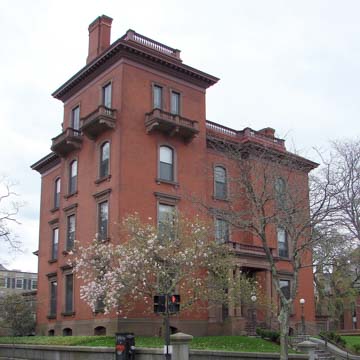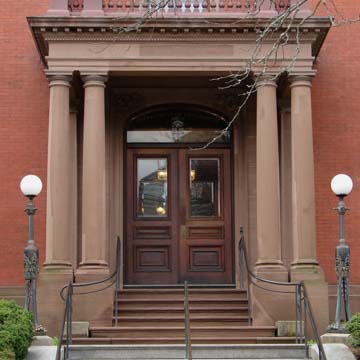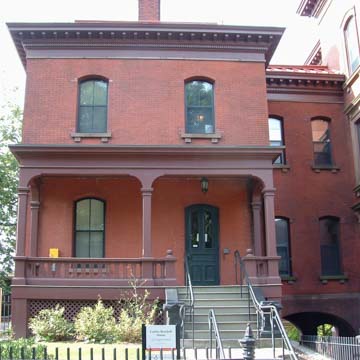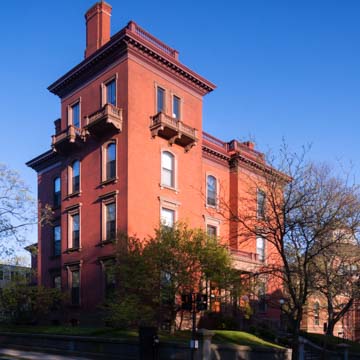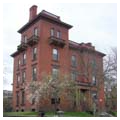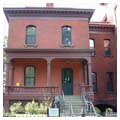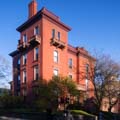You are here
Admissions Office, Brown University (George Corliss House)
George Corliss was internationally famous as an inventor and manufacturer of steam engines. The huge Corliss engine which powered the Centennial Exposition in Philadelphia was among the event's most popular and awesome attractions. In the mid-1870s, doctors informed Corliss that his young hypochondriacal second wife must winter in Bermuda. A busy man who thought he could ill afford the indolence of this remedy, Corliss replied, “I will build a Bermuda for Mrs. Corliss.” This house was that Bermuda, as functionally advanced for its time as it was stylistically retardataire. A subterranean porte-cochere, thermostatically controlled radiant heating and cooling system, hydraulic elevator, direct tap in the dining room to an artesian well, and concealed sliding insect screens were all incorporated into this austere, towering Italianate villa, a rigid interpretation of a picturesque form introduced nearly forty years earlier. When it was built, another, similar Italianate villa existed opposite, creating a twintowered approach to an important residential street, where now most of the survivors have been converted to professional offices. Some interior woodwork and fireplaces remain after conversion to offices.
Writing Credits
If SAH Archipedia has been useful to you, please consider supporting it.
SAH Archipedia tells the story of the United States through its buildings, landscapes, and cities. This freely available resource empowers the public with authoritative knowledge that deepens their understanding and appreciation of the built environment. But the Society of Architectural Historians, which created SAH Archipedia with University of Virginia Press, needs your support to maintain the high-caliber research, writing, photography, cartography, editing, design, and programming that make SAH Archipedia a trusted online resource available to all who value the history of place, heritage tourism, and learning.




















